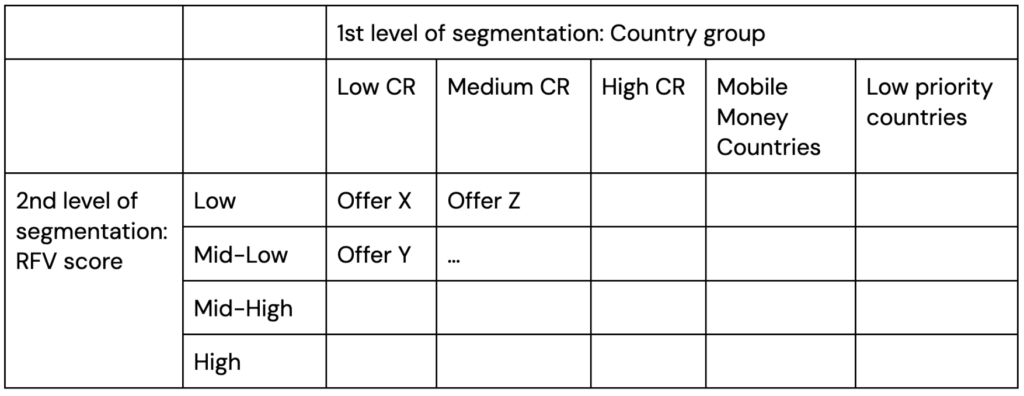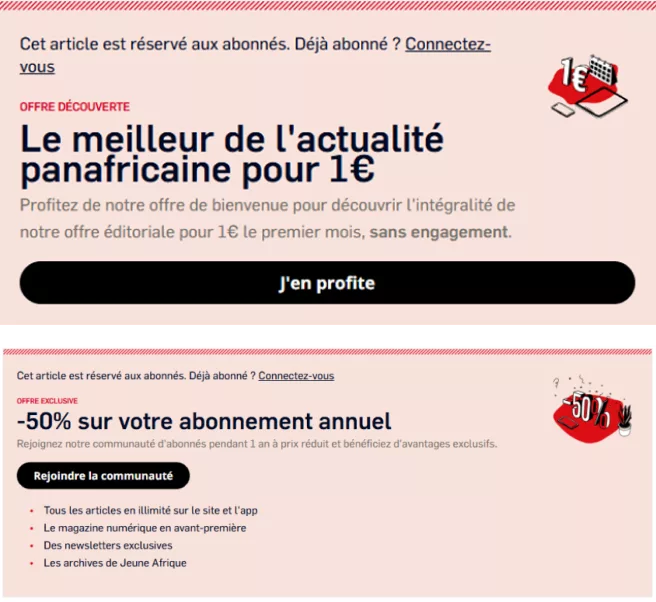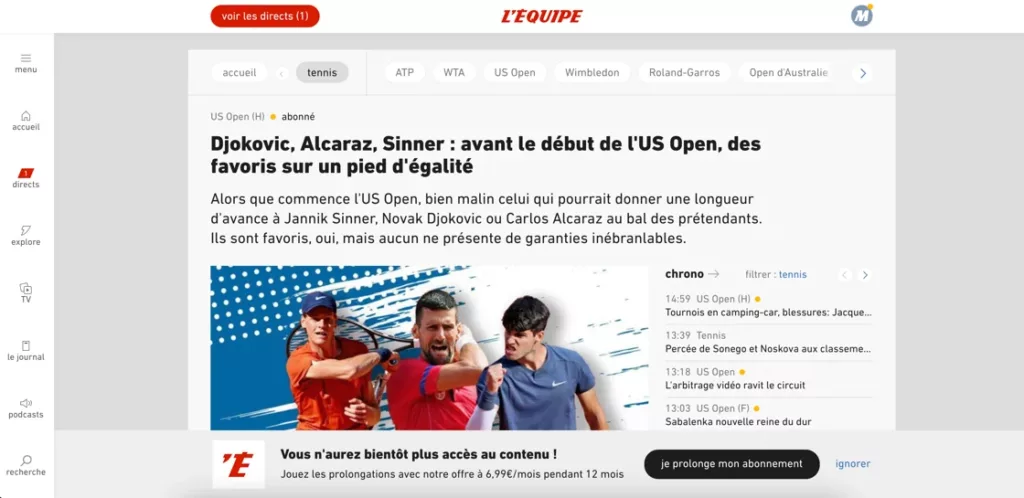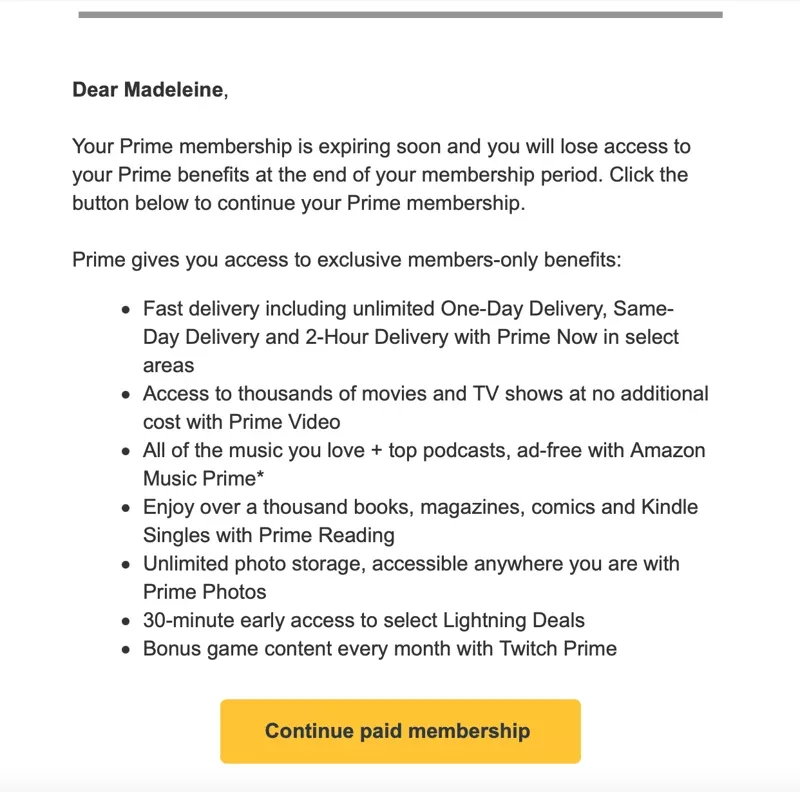

You're reading The Audiencers' newsletter #51 sent out on November 13th, 2024. To receive future newsletters straight to your inbox every two weeks, sign up here.
In today’s newsletter:
- How Jeune Afrique doubled conversion rates with a dynamic model
- The concept of peak subscriptions is not a problem with readers
- ✨NEW✨ “Ask the experts” conversations
- Benchmarks to integrate loss aversion into your subscriber cancellation journey
- Articles to add to your reading list
How Jeune Afrique doubled conversion rates with a dynamic model
Turn back to early 2024 and the Jeune Afrique team decided to completely reinvent their subscription model, making it more dynamic and personalizing offers based on a readers profile. Today, after months of testing, evaluating and developing, they announced that conversion rates increased by 30% following the implementation of a dynamic paywall, whilst the dynamic subscription offers page doubled conversion rates.
> Audience segmented using Jeune Afrique’s personalized RFV calculation, integrated into the Poool Dashboard, and country group, according to propensity to convert and preferred payment method

> Adapted messaging & pricing on the paywall and landing page for each group
For less engaged readers, the focus is more on sharing JA’s value proposition, promoting monthly offers with low commitment.
For engaged readers it’s the subscriber benefits that are forefronted, and the subscription offers promoted are for longer-term / annual subscriptions.

> Marketing autonomy to test, analyze and modify the paywall and offer pages in minutes
> 30% increase in conversion rate during initial testing on the paywall, and double conversion rates after implementing dynamic subscription offer pages
Full interview with Myriam Benyahya, in charge of digital subscription strategy at JA, on The Audiencers.
The concept of peak subscriptions is not a problem with readers
The topic of subscription ceilings, or peak subscriptions, has come up a lot in conversation recently, but after a chat with the HBM Advisory team it seems the problem has been misunderstood.
For Alan Hunter and Michael Brunt, the concept of a subscription ceiling isn’t about there not being enough potential subscribers to convert, nor is it about readers avoiding the news, or not having enough money. Instead it refers to a point where a publisher has saturated their core audience, where cost-per-acquisition becomes too high. There are still plenty of potential subscribers, but the publisher needs to build out their offering to reach wider than their core audience.
In short, it’s not a problem with readers, but a problem with publishers.
A very interesting discussion to get you thinking about building out your offering.
✨NEW✨ “Ask the experts” conversations
Our latest project at The Audiencers is to create more opportunities for conversations between professionals. We already have the thriving WhatsApp group and in-person events, and we recently announced the launch of commenting under articles. But today we’d like to share our “Ask the experts” live conversations!
Every few weeks we’ll have a live Q&A session with an expert on a certain topic. You’ll be able to join live to participate in the conversation, as well as share questions pre-event via our comment section on the relevant article, where we’ll also post the replay.
Up first: Gamification for engagement, monetization & retention with Christian Aubell of DN Media Group
How to get involved:
- Sign up to join the conversation live next Tuesday 19th, 4pm CET / 11am ET
- Check out DN’s case study on how they attracted a younger audience, and got almost 35,000 new registered users thanks to gamification
- Make sure you’re logged into your free account on The Audiencers to ask questions in the comment section of this article to ensure Christian replies in the live Q&A session
Benchmarks to integrate loss aversion into your subscriber cancellation journey
Loss aversion is essential in your subscriber cancellation journey!
Although unsubscribing should be simple, you also need to encourage your reader to question whether they really want to lose out on the benefits included in your paid offer.
> This can be within the cancellation journey itself but also in the grace period, such as the example from L’EQUIPE (banner saying “You soon won’t be able to read this content!”) or Amazon Prime via email


> Financial Times personalizes this page based on articles saved by the subscriber in their account
> Continue to push your value proposition, considering why the reader may have subscribed in the first place
> Create a sense of FOMO with messaging such as “lose” or “miss out”
> Provide a “Keep my subscription” button, perhaps making this bolder and more visible than the other
> Ensure help is easily accessed, perhaps with a call center number or link to a FAQ page
Unsubscription benchmarking article here for more ideas


